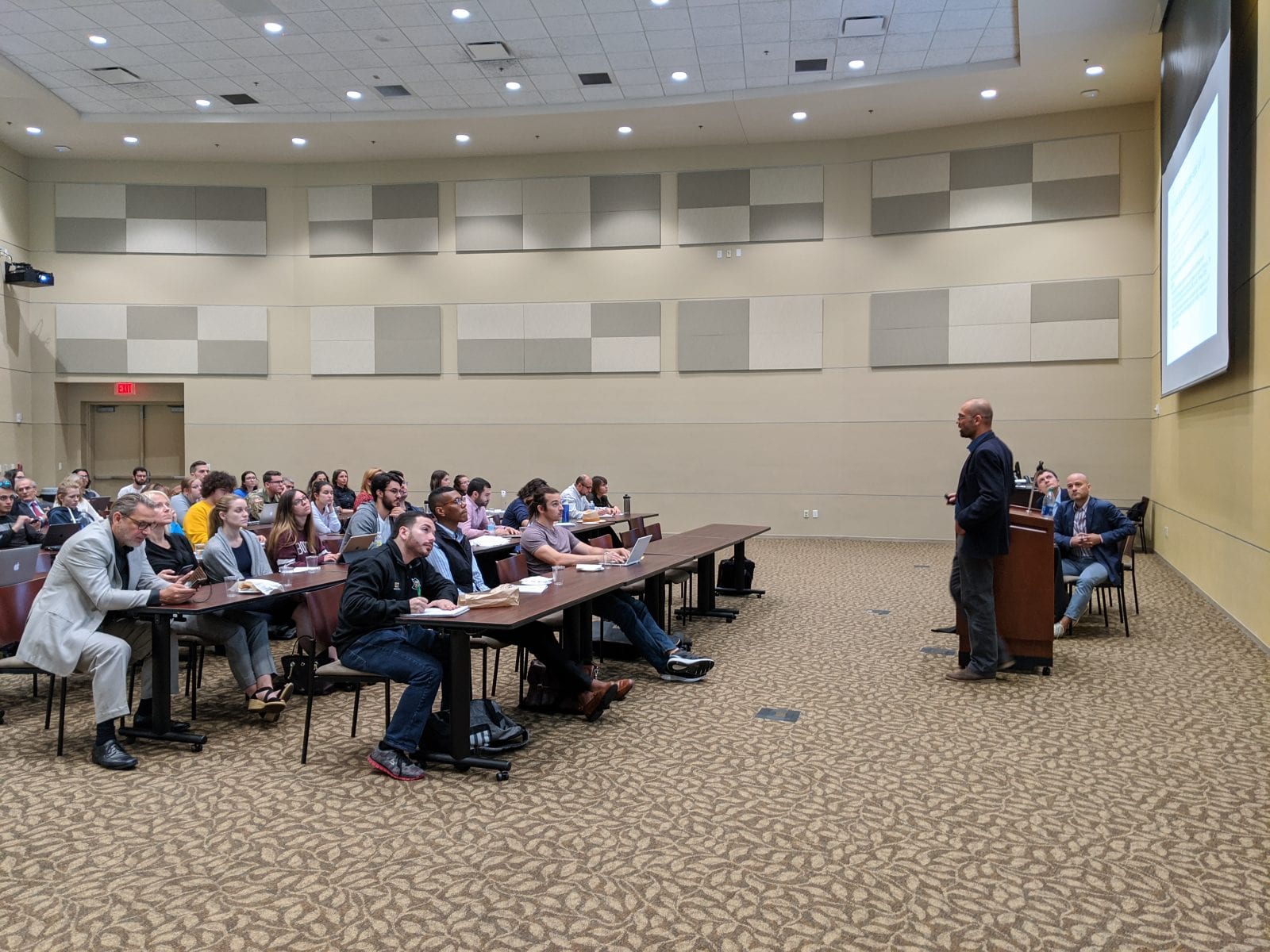Polarization and Fragmentation in Kurdish Politics and Beyond
By Doreen Horschig

This past Thursday, November 21, 2019, the Kurdish Political Studies Program (KPSP) hosted two distinguished scholars at the University of Central Florida for the event “Perspectives on Middle Eastern Politics: Polarization and Fragmentation.” The moderator of the event, Güneş Murat Tezcür, Jalal Talabani Chair and Professor at the School of Security, Politics, and International Affairs attracted an audience of more than 50 people.
The event started with Alexi Sadaka, a UCF undergraduate student who plans on developing research regarding Kurdish politics, being awarded the Dr. Najmaldin Karim Fellowship.
Murat Somer, a professor of Political Science and International Relations at Koç University, addressed political polarization becoming harmful to democracy. He argues that polarization causes democratic erosion during which political entrepreneurs unify their own base and weaken the other. Somer also reflected upon the result of polarization on Turkish society and how it hinders a peaceful resolution to the conflict with the Kurdish.
Costantino Pischedda, an assistant professor of International Relations in the Department of Political Science at the University of Miami addressed rebels representing the same ethnic group that ends up in conflict with one another. Inter-rebel war tends to break out in the face of opportunity. This theoretical framework sheds light on the rivalry between the Patriotic Union of Kurdistan and the Kurdistan Democratic Party in Iraqi Kurdistan.
A lively Q&A session followed these presentations. Members asked a series of questions to the speakers, engaging in political discourse. Somer argued that social media is a reflection of polarization rather than a cause of it. Pischedda remarked that the rise of a hegemonic rebel organization could bring an end to inter-rebel fighting.
